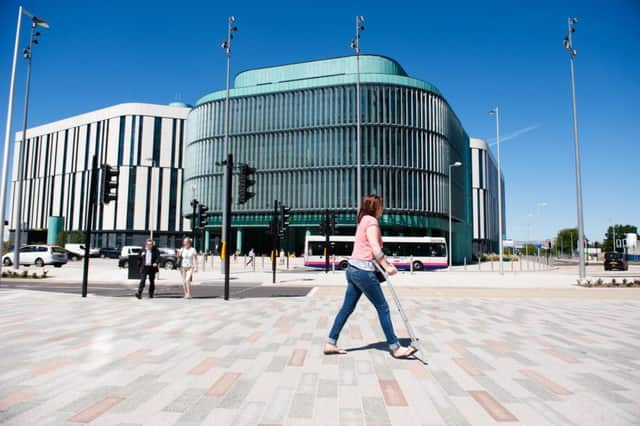Scotland’s doctors call for increased investment


In its manifesto for the 2016 Holyrood election, BMA Scotland today said the current model is “unsustainable” and called on ministers to review performance targets, make working in Scotland more attractive to fill vacant posts and commit to supporting general practice.
Scotland’s ageing population brings increased demand for NHS services and the NHS is facing real problems recruiting and retaining staff, the union said.
Advertisement
Hide AdAdvertisement
Hide AdDr Peter Bennie, chair of BMA Scotland, said: “This is a critical juncture for the NHS in Scotland and it is vital that there is an open and honest debate about its future direction at the coming election. People are living longer lives, but with that, more and more people are living with chronic illnesses and often have complex care needs.
“The pace with which demand on the NHS is increasing is outstripping resources and making the current way we deliver health services unsustainable. To close the gap there needs to be significantly increased investment.”
He called on politicians to set out “realistic and honest plans” on how they are going to close the funding gap rather than pass the blame between themselves.
Liberal Democrat health spokesman Jim Hume MSP said: “This election will be about the state of Scotland’s public services. Whether we are talking about cancer treatment times, A&E problems at flagship hospitals or the GP recruitment crisis, it is clear that our NHS is in need of intensive care after eight years of SNP government.”
Health Secretary Shona Robison said: “We are already working closely with a range of key organisations like the BMA as we put in place the changes we need to ensure our NHS can go on delivering high quality care for generations to come. While our stringent targets have led to historically low waiting times we agree that a streamlined approach to targets is best, which is why the number of targets set for the NHS has reduced from over 200 in 2005 to only 20 local delivery standards today.”
She added: “We are committed to transforming the way we deliver care within our NHS. This is why we are bringing together health and social care for the first time ever and have invested £100 million over three years to tackle delays in people leaving hospital.”